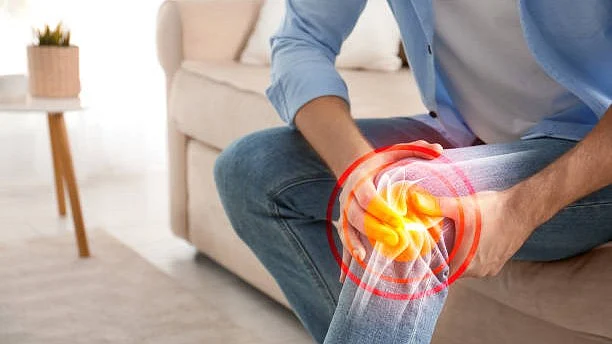As the temperature drops and the chilly breeze hits the atmosphere, the human body starts responding to the weather in an unusual manner. The body takes time to adapt to the changing weather conditions.
People start experiencing uneasiness, muscle spasms, joint pain, and blood pressure problems during winters.
Knee pain, out of all the joint pains, is one of the most common, yet challenging, problems that people experience during this time.
To compensate for the cold outside, the body tissue expands to increase the blood supply. This contraction of muscle causes stiffness in joints and lead to pain in the knees.
It is also believed that during this weather, some vital organs like lungs and heart take away some blood from the legs and arms to keep themselves warm which results in achy joints.
People with knee-related problems, especially people suffering from arthritis, need to pay extra attention and care to comfort the pain in knees.
Here are some tips one can follow to take good care of the knees during winter:
Regular Exercise
The best way to keep the knees in good condition is to keep them moving. Doing consistent exercise, whether indoor or outdoor, always helps and keeps the knees healthy.
People with pre-existing knee issues must consult an orthopedic doctor or a physiotherapist and learn some easy knee exercises that can be practiced on a daily basis.
People should indulge in some physical exercise on regular intervals to keep the knees active and in function.
Warm Clothing
People must ensure wearing warm and comfortable clothes during winters to help the body retain the required body temperature.
It is important to protect the body from the chilly weather outside in winters. Whenever people go outside, they must ensure that their body is fully covered and warm.
This helps in relieving muscle and joint pain. People with knee problems can wear knee caps to keep their knees moving.
Healthy Diet
Incorporating a healthy and nutritious diet helps the body function effectively. It is important to consume essential nutrients like iron, calcium, vitamins, protein, etc in regular diet.
A sufficient supply of healthy food helps in prevention of joint pain and recovery.
Stay Hydrated
During winters, the need of water and liquid intake decreases. This leads to dehydration and fatigue.
Conscious intake of water and fluids becomes essential during this time.
Consuming water and fluid helps the body stay hydrated and relaxes joint pain.
Warm Compress
People can use hot water pads or electrically heated bags in the winters as they help in relaxation of the body muscles and reduce pain in joints.
They also facilitate blood flow to the blood vessels of the problematic knees and helps in reducing stiffness
Avoid Exertion
People who are highly active in sports and physical training have a high tendency of experiencing muscle spasms and joint pains during winters.
It becomes essential for them to take good rest and not exert too much pressure on their body.
It is advisable to indulge in regular exercise and avoid aggressive leg workout.
(Dr Yash Gulati is an Indian orthopedic surgeon and the senior consultant orthopaedic surgeon at Indraprastha Apollo Hospitals, New Delhi. He specialises in joint replacement and spine surgeries.)
(At The Quint, we question everything. Play an active role in shaping our journalism by becoming a member today.)
